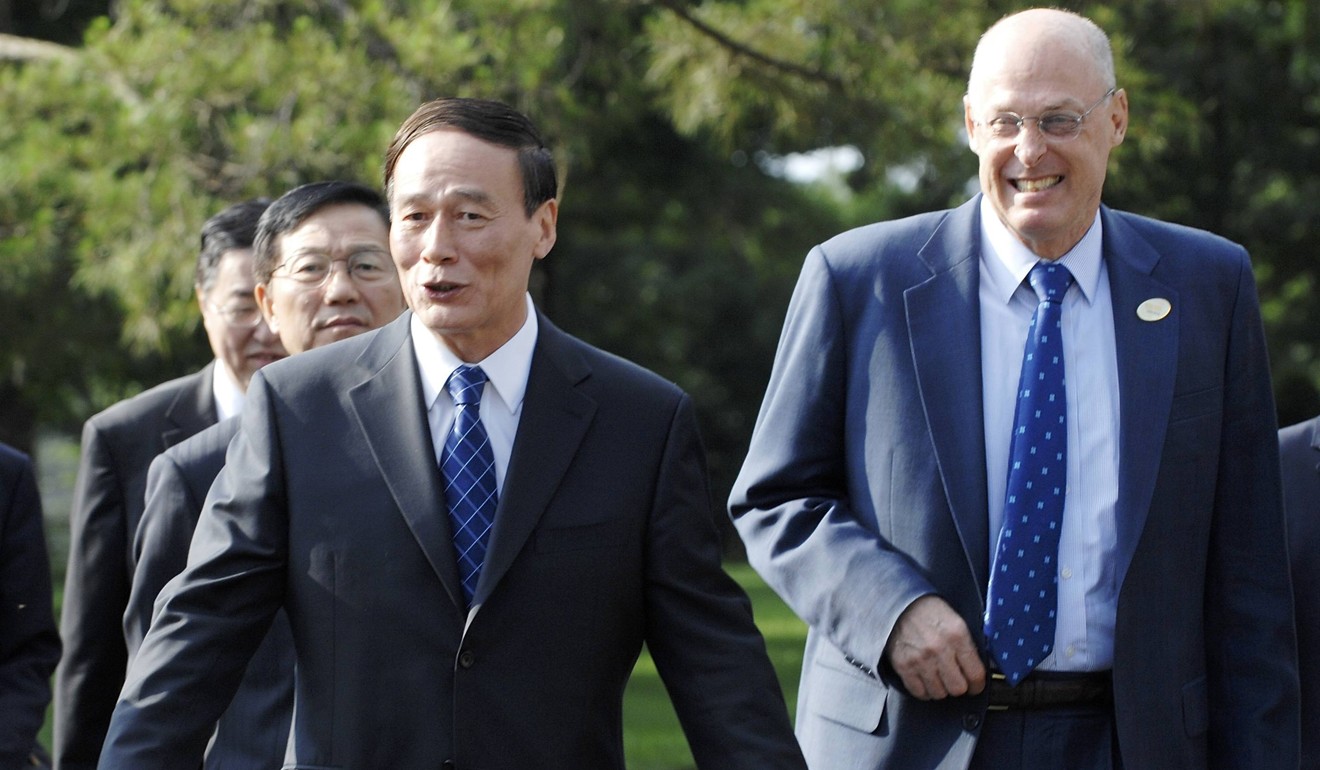
Is ‘firefighter’ Wang Qishan working behind the scenes on trade talks?
- Chinese vice-president tells visiting Mexican foreign affairs secretary that his main task now is helping Xi Jinping with ‘ceremonial diplomacy’
- There is speculation he has played a quiet role in negotiations with Washington given his experience in dealing with the US
Wang made the remarks on Monday when he met Marcelo Ebrard, Mexico’s foreign affairs secretary, who was on an official visit to Beijing, according to Hong Kong-based Phoenix Television.
“After 13 years, you’ve become more mature and I’ve become old,” Wang told Ebrard, recalling their meeting in 2006 when Wang was mayor of Beijing and Ebrard was a Mexico City mayoral candidate.
“You are now in charge of diplomacy, and I’m responsible for helping the president [Xi Jinping] with some ceremonial diplomacy,” Wang said.

During that time, he became familiar with a number of American business and political leaders, especially those with a Wall Street background, including Henry Paulson, the treasury secretary in the George W. Bush administration.
He has continued to meet business leaders and former foreign officials – although not all of those meetings are made public – since he stepped down from the Communist Party’s powerful Politburo Standing Committee in 2017 and became vice-president last year.
Among those Wang has met recently is Apple chief executive Tim Cook, who sits on the advisory board of prestigious Tsinghua University’s economics and management school.
He also met Derek Scissors, an economist with Washington-based think tank the American Enterprise Institute, when he visited Beijing last year. Scissors, who has in the past discussed China policy with the White House, said he had met Wang and some Politburo members during the trip.

After meeting Wang last year, Kurt Campbell, former assistant secretary of state for East Asian and Pacific affairs under Barack Obama, said Wang was “still quite relevant”.
He also said Beijing had wanted Wang to negotiate with US Vice-President Mike Pence.
“It looks like they are trying to match him up with Vice-President Pence to play some sort of role that will precede ultimate presentation of issues to President Xi and [US leader Donald] Trump,” Campbell said at an event in Washington in October following a trip to Beijing.
“But that hasn’t played out, I think largely because our administration has signalled that it’s not how we’re going to use our vice-president,” he said. “But he’s still quite relevant and plays a quiet role on the economic side.”
Could Wang Qishan be the new face of Chinese pragmatism?
Bloomberg reported last month that China had tried to schedule a call between Wang and Pence in early June. Washington declined the request, the report said, citing three anonymous sources.
Beijing did not make public Wang’s meetings with Scissors and Campbell.
Meanwhile, a Chinese government source, who requested anonymity, told the South China Morning Post that Wang had been asked to play a role in US issues, but he was reluctant to do so because of the difficulties involved.
Wang’s remarks on Monday followed talks between Xi and Trump on the sidelines of the Group of 20 summit in Osaka, Japan, on Saturday, when they agreed to a temporary truce in the trade war and to restart talks. Trump agreed to put on hold additional tariffs on Chinese imports as well as to lift a ban on US companies supplying parts to telecoms firm Huawei Technologies, but analysts said that a trade deal is still far from certain.


